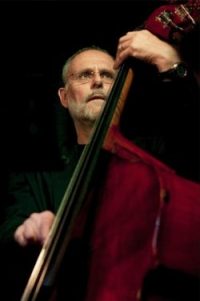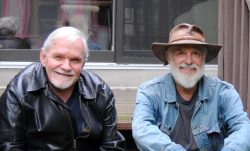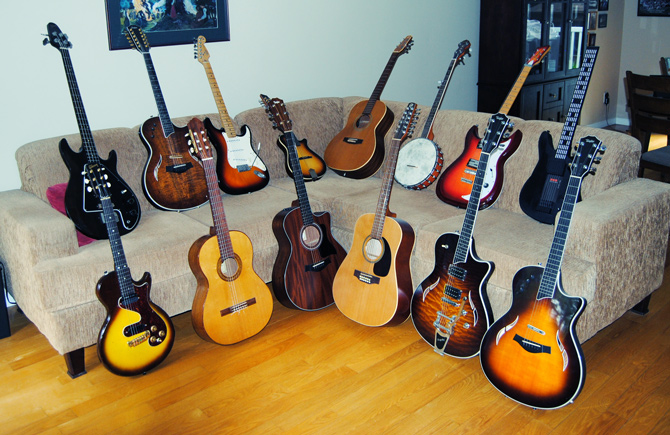Johnny Cash (1932-2003) was one of the most popular artists of all time, selling more than 90 million records worldwide. Although primarily associated with country music, he also embraced rock ‘n roll, rockabilly, blues, folk and gospel. Cash has the rare honour of multiple inductions into the Country Music, Rock ‘n Roll and Gospel Music Halls of Fame.
Rebellious by nature, Cash stood for the poor, the deprived and the downtrodden, singing songs of sorrow, moral distress and redemption. He always wore black on stage and became universally known as “The Man in Black.”
The Cash family was poor and had a hard life during the Great Depression. Johnny’s older brother Jack worked in a saw mill to help ends meet but in 1944, he was involved in a horrible accident at the mill and died at the age of fifteen. The twelve-year-old Cash was devastated and struggled with guilt over the loss of his brother all his life.
In 1954, Cash signed with Sun Records in Memphis, where Sam Phillips already had Elvis Presley, Jerry Lee Lewis, Carl Perkins, Roy Orbison and Howlin’ Wolf under wraps. Cash’s first recordings, “Hey Porter” and “Cry, Cry, Cry”, met with immediate success on the country music charts. Further hits, including “Folsom Prison Blues” and “I Walk The Line”, ensured that Cash, like Elvis, priced himself out of Sam Phillips’ limited budget. Both artists signed lucrative contracts elsewhere.
In all his illustrious and successful career, Johnny Cash made the bravest and most impactful decision of his life in 1968 when he released live recordings made at Folsom State Prison in California. The recording was a huge hit, reaching # 1 on the Billboard country and pop charts. Further prison concerts and recordings solidified Cash’s outlaw image and endeared him with a large cross-section of the population world wide. In 1972, Cash met with president Richard Nixon at the White House to advocate prison reform. Ever on the side of the disenfranchised, Cash released the album “Bitter Tears: Ballads of the American Indian” in 1964. His activism for Native Americans met with the typically bigoted resistance from radio stations, the recording industry and the media but Cash persevered.
Cash’s career was rejuvenated when he released the critically and commercially successful “American Recordings” in 1994. Cash sang the songs with only his guitar as accompaniment, while on “Unchained” in 1996, he was accompanied by Tom Petty and The Heartbreakers. Both albums featured stark songs by more contemporary artists and both albums won Grammys.
Our version of “Folsom Prison Blues” is played in the traditional blues format, an approach championed by Keb Mo.
Richard Séguin – vocal, guitars, mandolin
Alrick Huebener – upright bass
Roch Tassé – drums
Photo of Alrick by Kate Morgan


